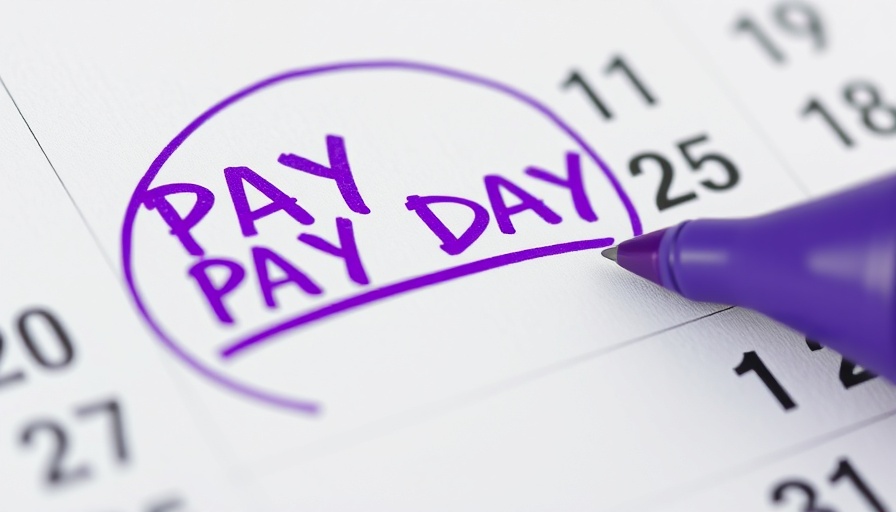
Understanding the Importance of Your First Paycheck
Receiving your first paycheck marks a pivotal moment in your life. It signifies not just a financial milestone, but a newfound responsibility and independence. Whether you’ve landed a part-time job, internship, or your first full-time role, this initial income can pave the way for your future financial habits and lifestyle.
Mastering Budgeting and Spending
Budgeting is fundamental when it comes to managing your first paycheck. A common method is the 50/30/20 rule, which encourages individuals to allocate their income wisely: 50% should go towards needs (like rent or groceries), 30% can be spent on wants (such as dining out or hobbies), and 20% should be directed to savings and debt repayment.
To maintain control over your finances, it's essential to track where your money is going. Apps like Mint or Personal Capital can simplify this process. They help you distinguish your discretionary income from necessary expenses and ensure you aren’t overspending in areas that might lead to debt.
Establishing an Emergency Fund Equals Security
Starting an emergency fund should be one of your top priorities. Financial experts suggest saving enough to cover three to six months of living expenses—this cushion can protect you from unexpected financial emergencies such as job loss or unforeseen medical bills. Creating a separate savings account that isn't linked to your checking account can help keep these funds out of temptation's reach.
Debt Management: Paying Off Loans
If you have student loans or credit card debt, the first paycheck presents an opportunity to start tackling those obligations. Two popular strategies for debt repayment are the Snowball and Avalanche methods. The Snowball method focuses on paying off the smallest debts first, providing psychological boosts as you eliminate each balance. Alternatively, the Avalanche method targets debts with the highest interest rates first, saving you money in the long term.
Utilizing your paycheck to make extra payments on your loans can significantly reduce future interest costs. If you’re using credit cards, do so responsibly by paying off the balance every month. This avoids accumulating high-interest debt, giving you greater financial flexibility.
The Joy of Treating Yourself Responsibly
Your first paycheck is a significant milestone worth celebrating. Consider allocating about 5% to 10% of your paycheck as “fun money” for a modest splurge. Whether it’s treating yourself to a nice dinner or purchasing something special, ensure that this spending fits comfortably within your overall budget.
Give Back: The Importance of Community
While it’s crucial to focus on your personal financial health, contributing to your community can also provide fulfillment. Use a small portion of your paycheck to support causes or charities that resonate with you. Not only does this enrich your life but it also fosters a sense of connection and responsibility towards others.
Setting Long-Term Financial Goals
As you begin your financial journey, it's vital to establish both short-term and long-term goals. Short-term goals might include saving for a vacation, while long-term ones could involve saving for a car or even a down payment on a house. The sooner you start saving for these goals, the easier they'll be to achieve. For example, setting aside just $50 a month can yield significant savings by the time you're ready to make those purchases.
Credit Management: Building a Positive History
A good credit score can significantly affect your financial future, impacting everything from loan rates to rental applications. An essential part of this process is making monthly payments on time and managing your credit card usage responsibly. Aim to keep your credit utilization low by using your card only for purchases you can pay off immediately.
Conclusion: Don’t Forget to Reassess Regularly
Your financial habits and situations will evolve over time, so it’s important to review your budget and goals regularly. As financial planner Melissa Sotudeh suggests, consider reinvesting any raises you receive into your savings to ensure that your financial foundation continues to grow. Keeping your finances in check from the very start sets you up for a lifetime of healthy money management.
By incorporating these smart financial tips, your first paycheck won't just be a reward for your hard work, but a stepping stone towards a stable, prosperous future. When you manage your money wisely, you not only improve your current situation but also build a safety net that protects against future uncertainties.
 Add Row
Add Row  Add
Add 



Write A Comment